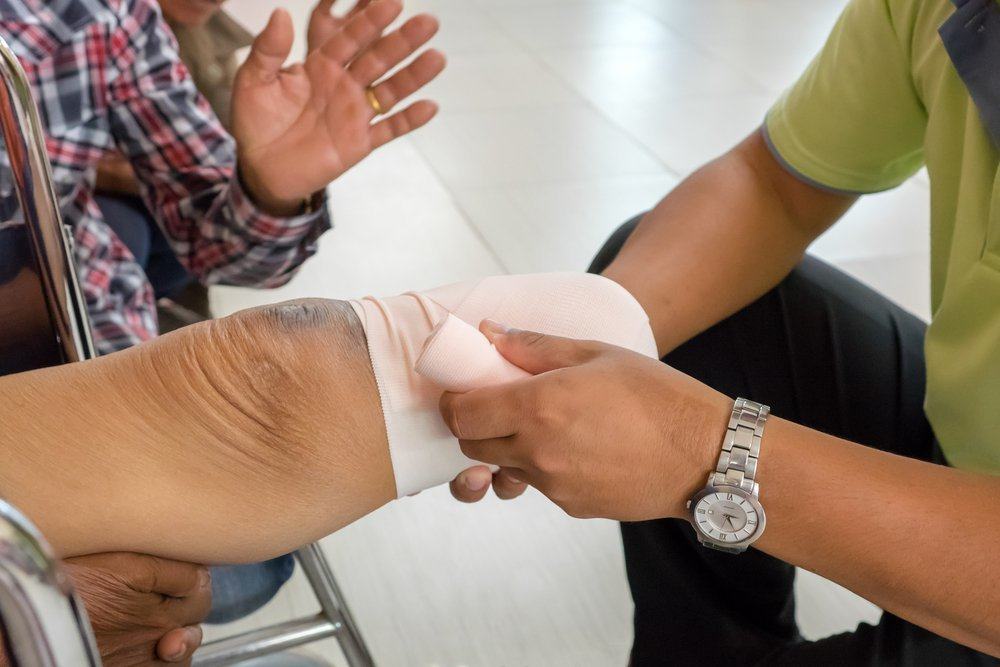Contents:
- Medical Video: The Role of Proteins in Blood Clotting
- How does the blood clotting process occur?
- Apparently, blood clots are not always good
- If an abnormal process occurs in blood clots, when should you see a doctor?
Medical Video: The Role of Proteins in Blood Clotting
What happens when the skin is injured, injured, or scratched? Most wounds will bleed, especially if the wound is deep enough. In order not to get a lot of blood coming out, the wound must be quickly treated and treated. Even so, do you know if the body has its own way to treat these wounds? Yes, when you are injured, your body will immediately respond to freeze blood. This makes your wounds heal faster and prevents blood from coming out. Curious how can the body freeze blood? This is the process of blood clotting that occurs.
How does the blood clotting process occur?
The process of blood clotting in the body is called the coagulation process. This process makes the blood that was in the form of liquid change to become lumpy and form a gel. This process is important to prevent the body from losing a lot of blood when there is injury or injury.
When there is bleeding, whether it's a little or a lot, your body will immediately give a signal to the brain to carry out the coagulation process. In this case, the body parts that are very reliable to be able to freeze blood are platelets (platelets) and protombin (proteins in the blood that make blood clot).
So this is how the blood process can freeze, clot, until no more bleeding occurs.
- When a wound occurs and secretes blood, it is a sign that the blood vessels (endothelium) are damaged. Well, at that time platelets also immediately attach to the damaged blood vessels and form a blockage, so that it can stop the blood coming out.
- At the same time platelets will stimulate proteins in the blood to make fine threads called fibrin. This fibrin thread will join the platelets to strengthen the blockage.
- Now, when the skin tissue that has a wound gradually improves, the platelets are taken back by the blood. While the previously formed fibrin thread will be destroyed, there will be no more blockage to the wound.
Apparently, blood clots are not always good
Although the body is relied upon as the first response when an injury occurs, the blood clotting process does not always have a good effect. Because the frozen blood can cause certain health problems if it occurs in abnormal levels.
Usually, the adverse effects of blood clots occur if:
- Platelets attach to a place that is not supposed to (area of injury or injury). It is precisely "traveling" through blood vessels, until finally settling in a normal blood vessel.
- Platelets form too much to block blood vessels. Most of these cases lead to heart attacks, strokes, and deep vein thrombosis.
If platelets clump in the artery area, which is a blood vessel that stores a lot of oxygen, then many parts of the body will experience lack of oxygen. While if platelets clot in a vein, which is a vein, this condition will make blood flow not smooth then affect the function of the heart and surrounding organs.
If an abnormal process occurs in blood clots, when should you see a doctor?
Diagnosing yourself when an abnormal coagulation process occurs is indeed quite difficult. It is recommended that you immediately consult a doctor if you experience a number of things, such as short sudden breathing; a feeling of pressure on the chest; difficulty in breathing, seeing, and speaking, reported from Healthline.
Usually, the first step the doctor takes is to do a blood vessel ultrasound (USG dopler). This test aims to determine the picture of your blood vessels, which will make it easier for doctors to make a diagnosis.












